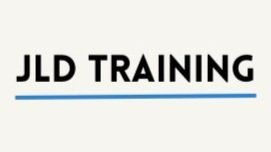Often wonder as an outsider what Forklifts really are, heard all the funny names like Cherry Picker (questioning since when did my nice walk in the field picking cherries require a MASSIVE machine?).
Although Forklifts are not needed for our field walks, they are an essential part of many industries, including warehousing, construction, manufacturing, and logistics. They are powerful machines that require specialised training to operate safely and efficiently. Without proper training, forklift operators can cause serious accidents and injuries to themselves and others. In this blog, we will discuss the importance of forklift training and what it entails.
Why is Forklift Training Important?
Forklifts are powerful machines that require skilled and experienced operators to handle them safely. Inadequate training can lead to accidents, injuries, and even fatalities. In fact, forklift accidents are one of the leading causes of workplace injuries and deaths.
Forklift training is crucial because it teaches operators how to properly operate and maintain forklifts. Proper training also teaches operators how to recognise and avoid potential hazards, such as uneven surfaces, overhead obstacles, and blind spots. By understanding the risks associated with forklift operation and the measures needed to prevent accidents, operators can work safely and efficiently.
What Does Forklift Training Entail?
Forklift training includes both classroom instruction and hands-on training. The classroom instruction covers the theory of forklift operation. It also covers the safety guidelines and regulations that apply to forklifts. The hands-on training involves the actual operation of a forklift under the supervision of a trained instructor. The training includes learning how to operate the forklift controls, how to navigate the machine through tight spaces and obstacles, and how to load and unload materials safely. The training also includes practicing emergency maneuvers, such as stopping suddenly and reversing quickly.
In addition to basic forklift operation, the training covers advanced techniques, such as how to handle heavy loads, how to operate a forklift on inclines, and how to work in hazardous environments. The training also covers how to perform routine maintenance and inspections, as well as how to troubleshoot common problems.
After completing the training, operators must pass a written and practical test to demonstrate their competence. Employers must also ensure that operators receive ongoing training to stay up to date with changes in regulations, equipment, and best practices.
Will my Forklift Knowledge be Perfect on Completion of the Training Course?
Only a few weeks ago I was scrolling LinkedIn and saw a story that made me laugh.
The individual explained he was a forklift instructor and was demonstrating how to maneuver the forklift through a narrow passage. He told the trainee, "now watch me as I expertly navigate this tight space."
As the instructor confidently approached the narrow passage, he misjudged the width of the forklift and ended up getting stuck. He had to call for assistance to get the forklift out of the tight space, much to the amusement of the trainee and other onlookers.
Moral of the story: even experienced forklift operators can make mistakes, and it's always important to approach every situation with caution and care! We’re just thankful this didn’t happen at JLD!


